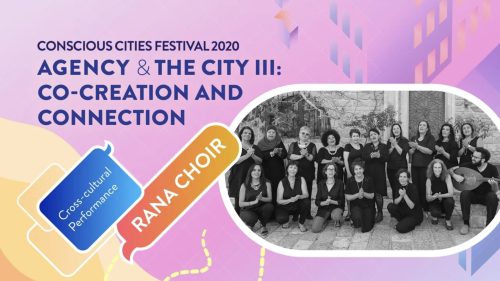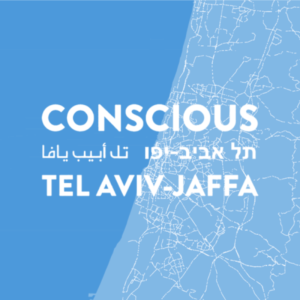Join us for an evening of stories and songs with Rana Choir, the only Arab-Jewish women choir in Israel comprised of 16 Muslim, Christian and Jewish women from Jaffa.
The group serves as a unique example of the possibility and potential of shared social and creative life. Rana Choir operates from the belief in the power of shared creation and song to foster intercultural dialogue and form deep human relationships. The choir’s existence is based on the belief that the empowerment and amplification of women’s voices in the public sphere will not only enrich Israel’s cultural scene, but indeed increase the public’s faith in the possibility of peace and a multicultural, shared society in the Middle East.
If we succeed in creating a crack – even for a second – in the idea that there will never be peace, then we’ve done something very powerful.Mika Danny, Rana Conductor and Founder
“Several recent studies point to a deterioration in the past 4-9 years in the perceptions of Arab and Jewish populations toward one another. Indeed, the Israel Democracy Institute’s 2019 survey shows that 54% of Israel’s Jewish population thinks that its Arab citizens are looking to harm the country in some way. Over 50% of Israel’s Arab population feel less secure and more alienated in Israeli society than they did 5 years ago. The majority of Israel’s Jewish population are less inclined than in previous years to afford Arab citizens equal opportunities. On the other hand, approximately 2/3 of Israel’s Arab citizens consider themselves part of Israeli society, and 2/3 of Jewish citizens believe that the Arab population is interested in integration into Israeli society. And yet, NGO Sikkui’s study shows that while 60% of Jewish Israeli adults speak English, only 8.6% of them are proficient in Arabic. About 60% of Israeli Jews prefer not to enter Arab villages. That is, while most Israelis claim to be in favour of an integrated society, their lives are still increasingly separate. Rana Choir is a living example of exactly the opposite. For 11 years, the choir singers have shared meals, personal stories, family tragedies, and have weathered together periods of heightened conflict and war. Through it all, they have persisted in their commitment to listening, empathy, and shared creativity. When they take the stage, sing, and share stories in Hebrew and Arabic, they exhibit a hopeful alternative to the reality that these studies represent.”








